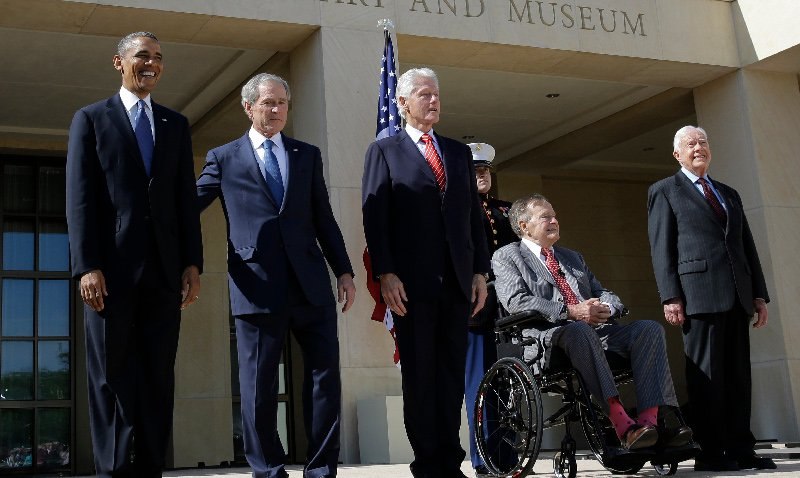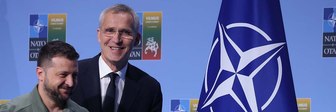Barack Obama is seen as more hawkish than Jimmy Carter, but more dovish than Bill Clinton
Recent back-and-forth exchanges over foreign policy between Texas Governor Rick Perry and Kentucky Senator Rand Paul included a disagreement over President Ronald Reagan's foreign policy. Was the Cold War-era president a man who desired "persistent engagement" abroad or a man who "hated war"? Was he a hawk or a dove?
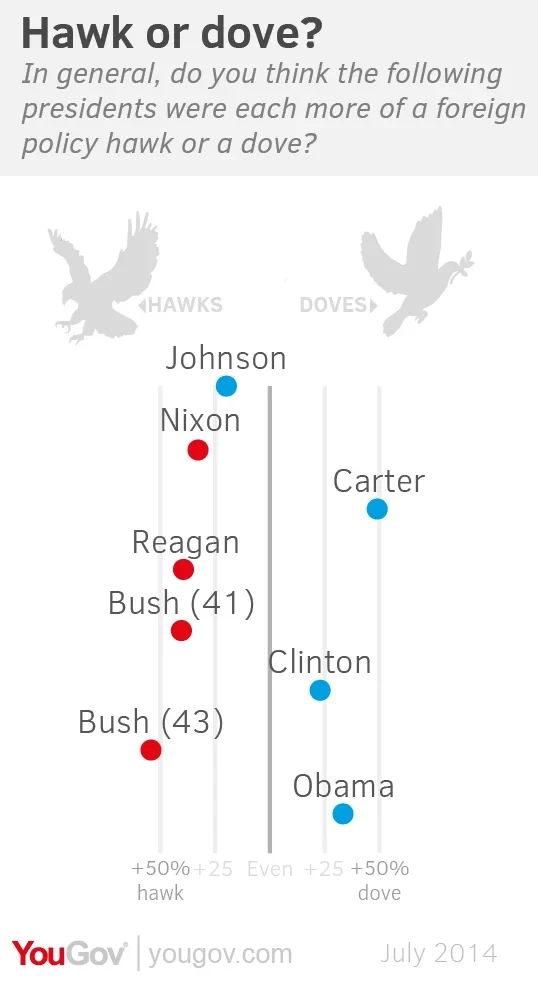
A new YouGov survey asked the public whether they considered each of the eight men elected to the presidency from the Vietnam War to the present to be a dove or a hawk (including four Democrats and four Republicans, and excluding Gerald Ford, who only became president when Nixon resigned).
Most Americans, it turns out, do see Reagan as a hawk. Reagan is seen as a hawk by more Americans (55%) than five of the other presidents on the list and the same number as George H. W. Bush, who was president during the first Iraq War. Nearly two-thirds (63%) of the public say Bush’s son, George W. Bush, was a hawk. The younger Bush, of course, was president when the United States invaded Afghanistan and Iraq. By contrast, Barack Obama – who campaigned on ending both of those wars – is seen as a dove by most (51%) Americans. Only Jimmy Carter is seen as a dove by more (58%).
There does appear to be a some correlation between periods of increased defense spending and the perceived hawkishness of the sitting president, but each president's political party also seems very important.
The Republican president with the least hawkish reputation – Richard Nixon – is even more widely viewed as a hawk than the Democratic president with the most hawkish reputation – Lyndon Johnson. More Americans did die in Vietnam during the Nixon Administration than during the Johnson Administration, but Nixon also ended the war.
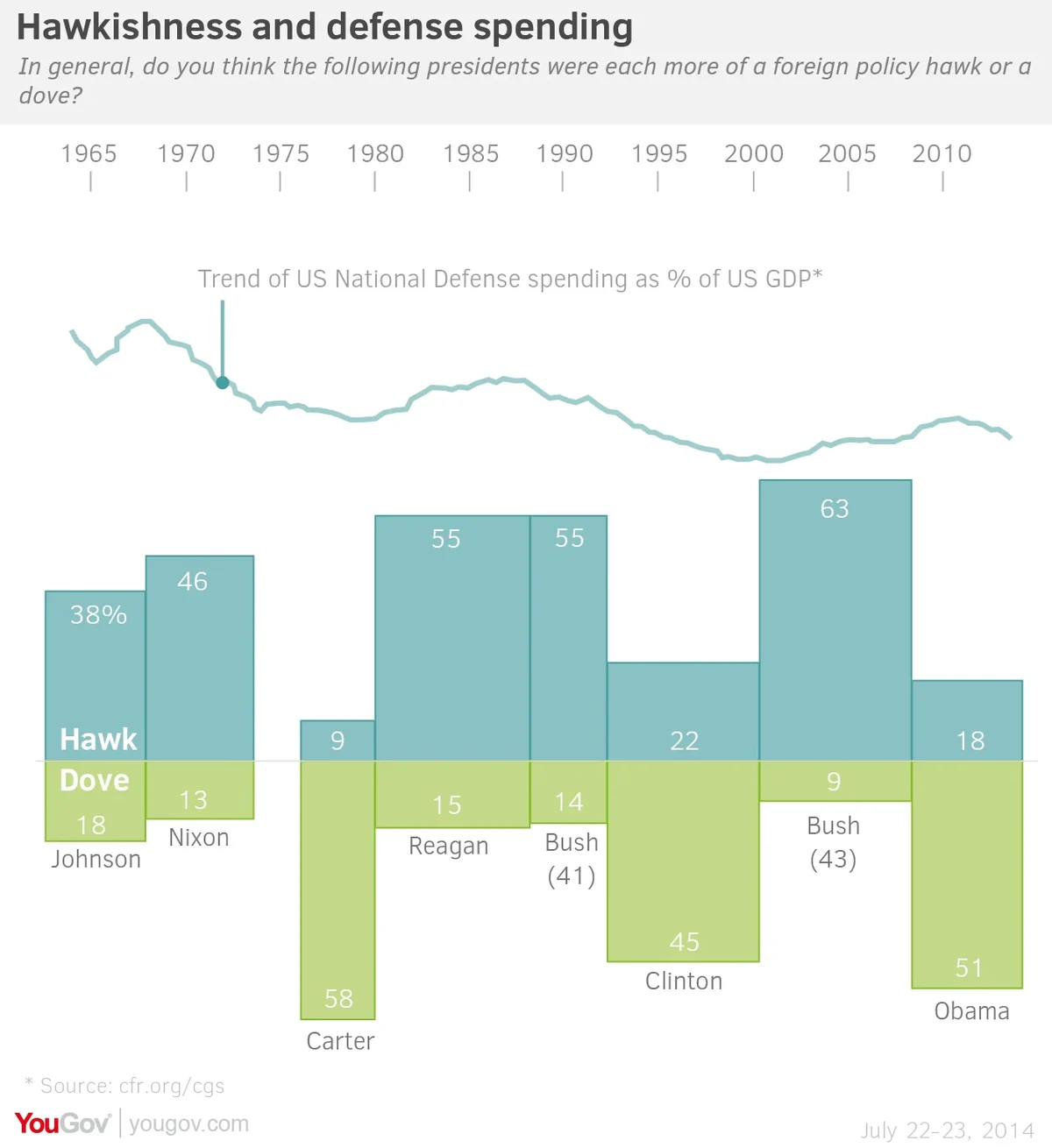
How Americans see themselves
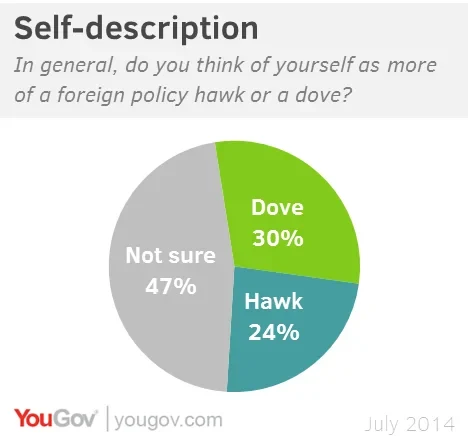
Which category do Americans put themselves in? Among those who have an opinion, the United States appears almost evenly divided between self-described doves (30%) and hawks (24%). Many (47%) aren’t sure – even more than is the case with any of the presidents – suggesting many people either don’t think about foreign policy very much or are unfamiliar with the terminology.
Americans who identify as Republicans are more likely to also identify as hawks, and Democrats as doves, similar to how the presidents were judged.
Independents, as is often the case, fall somewhere in the middle. However, 52% of independents overall don’t know which category they fall into.
Younger Americans tend to be more dovish than their elders, although the differences are less significant that the partisan divisions.
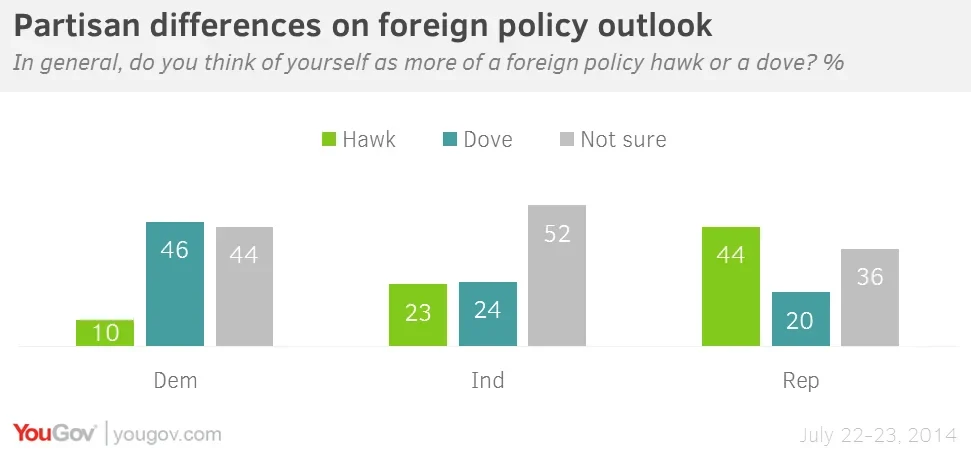
Looking ahead, there is not much consensus – even within each party – over whether the next president should be more or less hawkish than President Obama has been so far. 40% of Republicans who is more willing to use military force, but a third want a president who is either less willing or about as willing as Obama (whom three quarters of Republicans see as a dove). The opposite trend prevails with Democrats. While 45% want a president who acts similarly to Obama, the rest of Democrats with an opinion lean heavily towards wanting someone less (35%) rather than more (5%) hawkish.
Image: PA
Full poll results can be found here.